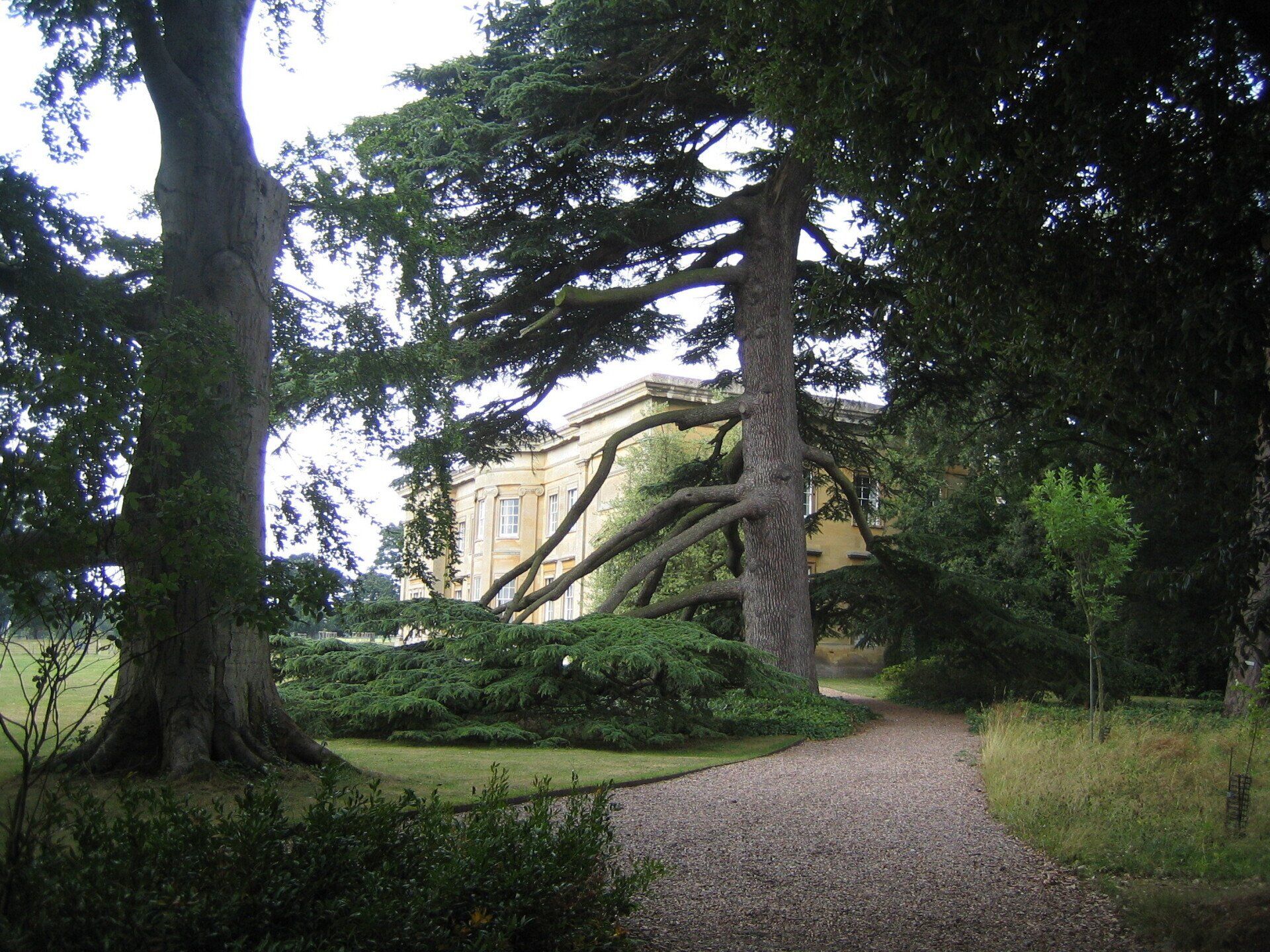Bridgerton & Regency Era
Welcome Dear Reader,
To Spetchley Park Estate, seat of the Berkeley family for over 400 years.
Spetchley Park, Worcestershire ~ built in 1811
ButtonBridgerton & Regency England
The Regency era (1811-1820), in which the TV series 'Bridgerton' is set, actually forms part of the Georgian era (1714-1837).
When George III (the third monarch of the Georgian era) was ‘taken ill’ and retreated from society and his Kingly duties in 1811, his son George (Prince Regent) became the figurehead of England.
This is known as the Regency period and lasted until George III’s death in 1820 and subsequently the Prince Regent’s coronation to become king George IV in the same year.
Regency Society
Although George (Prince Regent) is not featured in the costume drama series Bridgerton, his mother and King’s consort, Queen Charlotte and her courtly proceedings take centre stage along with the Ton.
The Ton, were members of a tight knit group of England’s wealthiest families, from the top echelons of fashionable society, the titled peerage, such as Dukes, Earls, Viscounts, Barons, Lords and their families, together with other society favourites of the period.
They engaged in what has been described as ‘a business of pleasure’, following strict codes of conduct, fashion and customs that dictated who, what and where was sociably acceptable.
Exact rules also guided members and their families how and when they were introduced at court, what they wore, when they debuted, how they courted, who they married, where they lived and what work the men did or did not do.
Representation of a Ball in the Regency era
ButtonThe Season
Duty, Desire and Scandal
The Season, was the time of year that brought the titled peerage into the city of London to conduct government, while their wives held lavish balls, parties and dinners in order to conduct the business of networking and finding suitable marriage partners for their debuting daughters.
If a woman did not marry, she faced the unenviable prospect of being dubbed as a spinster, with no or very little standing in society. It was imperative that they wed! Of course they also married for money, in order to keep the family's position in society and to provide much needed funds for the running of their family estates.
Bridgerton, the costume drama series, exposes in an audacious and joyous way, many bridges in society and the lengths that some would go to in order to secure a marriage proposal for their beloved and not so beloved offspring. It is a modern dramatisation set in the Regency period, where duty, desire and scandal ensue.
The Country Retreat
When they were not in London, the Ton would often journey to and entertain at their country retreats, many of which would be lavish mansions in the English countryside.
These country seats were famous for their classical style and were generally built or influenced by architects such as Robert Adam or Inigo Jones, as well as their coveted gardens and rolling parklands created or inspired by landscape designers of the time William Kent and Lancelot Capability Brown.
The Georgian era as a whole, is renowned for its timeless elegance, romance, famous literature figures and is symbolised by grandeur, formal gardens and vista landscapes, together with interiors, art and designs inspired by nature, flora and fauna.
The grandest of times indeed… elements of which many still enjoy and some attempt to emulate today.
Spetchley Park was built at the very beginning of the Regency era. The family name can be traced back to the Berkeleys of Berkeley Square and even as far back as Henry II and William the Conquerer.
ButtonCultural Bloom
The Romance of the Arts
The Prince Regent was a major supporter of the arts and architecture, contributing to the Regency era becoming a time of cultural bloom.
Fashion was less fussy than previous periods, art and literature expressed the romantic movement with artists, novelists and poets such as Jane Austen, Lord Byron, John Keats, Mary and Percy Shelley, William Wordsworth, John Constable and JMW Turner entering the scene.
In 1814 steam printing began to provide a faster printing method and contributed towards the expansion of popular novels depicting the lives of the wealthy and titled. Scandal and gossip could also be spread more easily, with the written word distributed on pamphlets and leaflets of the day.
While wealth and refinement, was the preserve of the wealthy few, especially those in Prince Regent’s social circle, the Napoleonic Wars and Industrial Revolution brought about mass unemployment and a population boom of working-class poor migrating to already crowded towns and cities.
However, the continuing popularity of the Regency era is much due to our familiarity and leaning towards the romantic notion, the elegance and poise of dances and balls, curtsies, politeness and refinement depicted in costume dramas and novels by such beloved writers of the time as Jane Austen. It is also the beauty and elegance of the architectural legacy that it has left on our town and country landscapes.
And so 'dear reader', our love of this enlightening period of history lives on in our hearts to this day…
Sign up for our monthly Newsletter
Every month we send a round-up of the latest stories, event news and offers from across the Spetchley Park Estate. Plus, if we spot anything extra we think you'll love, we'll let you know about that too.
Simply sign up today and don't worry – you can unsubscribe from these emails at any time.
Contact Us
Thanks for signing up!
Please try again later.
Spetchley Park Estate
Spetchley
Worcester
WR5 1RS
E: enquiries@spetchleyparkestate.co.uk
Estate Office Gardens Welcome Centre
T: 01905 345 213 T: 01905 345 106
Legal
Information
When you contact Spetchley Park Gardens via our website we may collect your personal data. We use this information to provide the services requested and, if you agree, to send you marketing information. We will never share your information with any other companies for marketing purposes. For more information please see our privacy policy.
Spetchley Park Gardens / Spetchley Gardens Charitable Trust - charity no. 1061063







